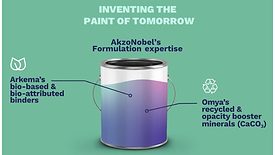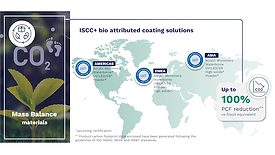Home » Keywords: » bio-based materials
Items Tagged with 'bio-based materials'
ARTICLES
EVENTS
Sponsored Webinar
11/7/24 to 11/7/25
Contact: Ian
Enhancing Adhesive Formulations with AI: Balancing Regulatory Compliance and Performance
Keep the info flowing with our eNewsletters!
Get the latest industry updates tailored your way.
JOIN TODAY!Copyright ©2025. All Rights Reserved BNP Media.
Design, CMS, Hosting & Web Development :: ePublishing








